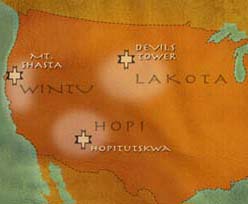Both Kennedy and Johnson wanted tribal peoples to affirm that they were above all citizens of the United States. By calling Indians First Americans, both presidents intended to honor American Indians as the first people in the country of the United States. This is an unusual plea from both presidents, since Indians were granted citizenship only in 1924, and generally not by individual or collective consent, but rather through acts of Congress. Most American Indians were quite strongly committed to U.S. citizenship, but considered treaty and indigenous rights paramount. Calling Indians First Americans, implying they are the first citizens of the United States, is not only historically incorrect, but symbolically damaging to Indian efforts to renew tribal cultures and governments. First Americans, as first citizens, do not have indigenous rights that were preserved in treaties and were exercised before the United States became a country.
In particular, how often do they refer to First Nations, the preferred term in Canada? Or to Indian, tribal, or sovereign nations? Not that often, I'd bet.
Similarly, how often do presidents say Indians were here before America existed, Indians owned the land, and foreign invaders took it from them? Not very often, again. Politics means saying that Indians faced unspecified "struggles" or "hardships" and that's about it.
Not that we should abandon the phrase "First Americans." It does remind us that Indians were here first. The point is to study the context whenever you hear this term. Is the speaker trying to highlight the Indians' primacy or obscure it?
For more on the subject, see Obama to Dissolve Tribes? and "American Indian" vs. "Native American."


3 comments:
You are making a pretty good case to bring back "Novamundian" !
)
Don't get us started on that or Russell Bates may return from wherever he went.
"Novamundian" goes too far in the other direction, implying that Indians come from another world. One where they speak a Latin-based language, oddly.
With "theories" that the Natives were originally Ottoman Turks, or Israelis, all floating around, I'd not be surprised if someone ventured that the Indians were originaly inhabitants of a far-flung colony of the Roman Empire.
Post a Comment